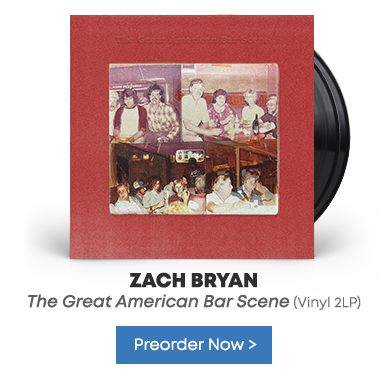The world was an extremely different place three decades ago. While artists like Madonna sought out the spotlight in the same way contemporary stars currently do, the popular music landscape bore scant resemblance to ours today. Seizing on the public's fascination with MTV, stylized imagery, and general decadence, Motley Crue ascended to the top of the charts with Girls, Girls, Girls – a boogie- and booze-soaked effort steeped in literal and figurative excess, politically incorrect habits, and Hollywood-sized tales of debauchery, death, and sex. Its songs dripped sleaze, its narratives prized leather-wrapped raunch, and its title track became a strip-club anthem. This week witnesses its anniversary release on vinyl as the aptly titled XXX: 30 Years of Girls, Girls, Girls. In honor of the record's contributions to hedonism, hair gel, and hard-to-break habits, we revisit five sleaze-rock albums that transcend the era and still offer musical pleasures – guilty or otherwise – and, most importantly, fun.
Faster Pussycat Faster Pussycat
Named after a Russ Meyer film, Faster Pussycat bypassed any need or want for subtlety. The Los Angeles quintet's self-titled debut arrived the same year as Girls, Girls, Girls and chased similar themes. Yet whereas some of their contemporaries opted for ever-so-slight grit, Faster Pussycat heaped on fingernail-polish-slick glam and unfettered smuttiness. The straightforward "No Room for Emotion" could've been a B-side on Aerosmith's Rocks – all the way down to Taime Downes's bluesy, stretched-out vocals. Devoted to a then-famous Sunset Strip club co-owned by Downe and MTV "Headbangers Ball" veejay Riki Rachtman, "Cathouse" rollicks with barroom-piano lines and self-promotional boasts. "Don't Change That Song" pays homage to spinning vinyl and castigates anyone who attempts to mess with the groove. And, if not for "Girls, Girls, Girls," Faster Pussycat's crunch-laden "Bathroom Wall" would claim the title of the best sleazy rock song ever committed to tape. Once you hear it, there's no doubting Downe and company practiced what the lyrics preach.
Bulletboys Bulletboys
When Bulletboys issued their eponymous debut for Warner Bros. in 1988, Van Halen was in full-on Van Hagar mode, with much of the latter's OU812 torpedoed by inward-looking seriousness, uneven arrangements, and layer upon layer of keyboards. Enter a Los Angeles quartet sculpted to visually and, to an extent, sonically mirror David Lee Roth-era VH. Its producer: Former VH knob-twister Ted Templeman. No, Bulletboys axeman Mick Sweda doesn't hold a candle to Eddie Van Halen's inventiveness or proficiency. And vocalist Marq Torien lacks Roth's penchant for self-effusive humor and minstrel-sideshow schtick. But nearly everything else about this bombastic set on which Torien howls about brawling, televangelists (a predictable target in the late 1980s), and "G-string shivers" meets the boisterous, hard-rocking, party-hearty, muscle-car-loud standards VH set in the late 1970s. The vapid lyrics? Pure teenage-level fantasies. No matter. Lewd wailers "Smooth Up in Ya," "Kissin' Kitty," "Hard as a Rock," and "F#9" throw haymakers and exude an energy and spirit the band from which they're borrowed had forgotten.
Ratt Invasion of Your Privacy
Ratt will forever be known for "Round and Round," a surprise breakthrough released just a little more than a year prior to Invasion of Your Privacy. And while the single and its Milton Berle-starring video proved more commercially successful than anything here, this 1985 platter represents the apex of Ratt n' Roll. For all the knocks on the cartoonishness, vacancy, and cheesiness ascribed to the subgenre – criticisms that became increasingly valid as major labels began signing bands as hopeful clones of existing hitmakers – the guitar playing alone on Invasion of Your Privacy merits a reevaluation of not only Ratt's sophomore record, but a majority of its pre-1990 catalog. A bulk of the credit goes to shredder Warren DeMartini, who, for all the flash prevalent in the era that gave us Yngwie Malmsteen, demonstrates a knack for restraint, tension, and economy of scale. Pair such sensibility with the greasy, slippery, and libidinous deliveries of front man Stephen Pearcy, and lustful hip-shakers like "Dangerous but Worth the Risk," "Got Me on the Line," and "Give It All" come on akin to well-mixed cocktails: balanced, intoxicating, addictive.
LA Guns Cocked and Loaded
Never mind the overt insinuation presented by the album title. LA Guns' 1989 sophomore set rumbles as a biker-gang-suited rush of adrenaline shot through with enough rawness to evade hair-metal stereotypes. Of course, any effort that includes a song titled "Sleazy Come Easy Go" – a lesson-learned narrative replete with cowbell – and another about a girl whose manipulative ways get equated to malaria isn't meant to be taken too seriously. Still, the quintet, which counted pre-Guns N' Roses guitarist Tracii Guns among its members, managed to create an album whose gang-shouted choruses, motorcycle-engine-revving riffs, and sturdy melodies play as a soundtrack to hard living, cheap gratification, and dive-bar diversions. See the blistering chug of "Rip and Tear," blustery squeal of "17 Crash," and shotgun-pellet blast of the declarative "I Wanna Be Your Man." The group's biggest hit, the genuinely poignant eulogy "The Ballad of Jayne," dedicated to actress Jayne Mansfield, washes it all down.
Kiss Asylum
Many Kiss fans rightly dismiss this album's existence. Group founders Paul Stanley and Gene Simmons later went as far as disowning it and chalking the music up to a transparent attempt to mimic trends. Released only two years after Kiss removed its makeup and recorded in the form of Creatures of the Night its meanest, most formidable work since 1977, Asylum may as well come from impostors. Embarrassments to its creators' legacy aside, the 1985 set functions as a paean to Spinal Tap-worthy pop-metal fluff and professional hitmaker/songwriter-for-hire Desmond Child's ear for stadium-bound hooks. Spit-shined to a sheen and rife with disposable albeit catchy formula, aural sparklers such as "King of the Mountain," "Any Way You Slice It," and "Radar for Love" emit street-walking tawdriness without even trying do so. Factor in the on-the-nose salaciousness of the preening "Uh! All Night," strutting "Secretly Cruel," predatory "Love's a Deadly Weapon," and chest-thumping "Radar for Love," and Asylum functions as the phony letters section of a Reagan-age adult magazine.
25th Aug 2017




































